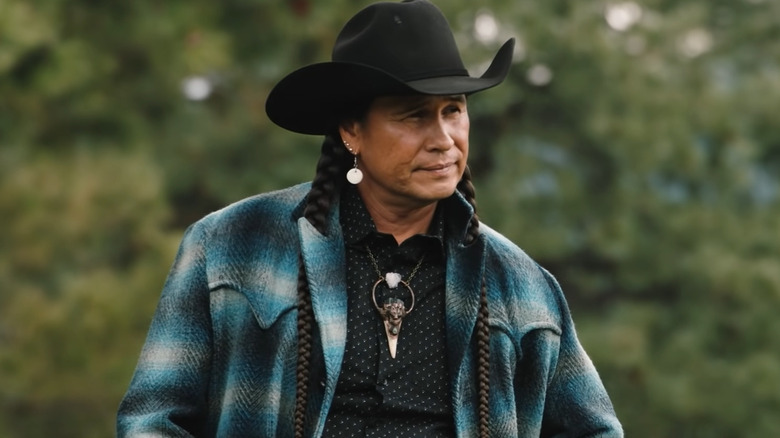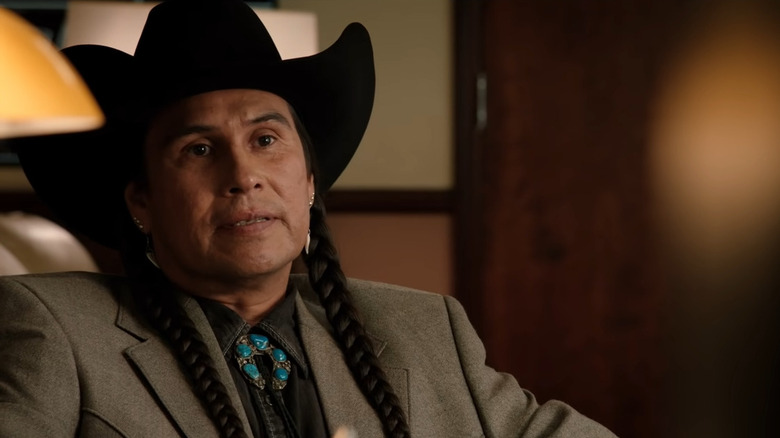1923's Storyline Had Mo Brings Plenty Weeping Behind The Scenes
"Yellowstone" is about more than merely the trials and tribulations of the Dutton family. It's about the culture at large and finding a place for yourself in this massive piece of land we call America. However, finding a place for yourself takes on even greater resonance for the indigenous community. All of this land originally belonged to them before colonizing European forces forced them off it.
"Yellowstone" never loses sight of the fact that while the Duttons work tirelessly to protect their land, that very same land once belonged to the indigenous people of Montana. And those themes have only grown stronger with the introduction of various "Yellowstone" spinoffs like "1883" and "1923." To ensure indigenous communities are depicted empathetically across these series, Mo Brings Plenty, who plays Mo on "Yellowstone," serves as an American Indian Affairs Coordinator on the series. That means he's tasked with ensuring the show appropriately represents Native culture, and he revealed how emotional the whole affair can make him.
Mo Brings Plenty needed a moment to compose himself
Much like its predecessor, "1923" hasn't shied away from depicting the plight of the indigenous community. The first episode of the series contains scenes showcasing the emotional and physical abuse that took place in Catholic boarding schools for indigenous youth in Montana in the 1920s, a real, shocking chapter in their history. To ensure such scenes are handled with care, it makes sense Mo Brings Plenty would be brought on as a consultant, but sometimes, the work can be a lot for him to handle.
The actor appeared on "The Official Yellowstone Podcast" to talk about his work on the show and its spinoffs. He explained the difficulty of such work for him personally, stating, "There were moments I had to walk away from the monitors and just go be by myself and I'm not gonna lie, I wept. And then I just have to look around and see the crew, thank goodness they're so amazing, and see them and be like, 'Ok yeah, we're just doing the show.' But for me, it's not just a show; it was our lives."
He went on to talk about how it may have been hard to watch, but it's important for everyone to know the history of indigenous people, even if it's not pretty to look at. It can only help the community going forward, and luckily, Native communities have made real strides both in front of and behind the camera in Hollywood in recent years, meaning there's a greater sense of authenticity with such scenes.

